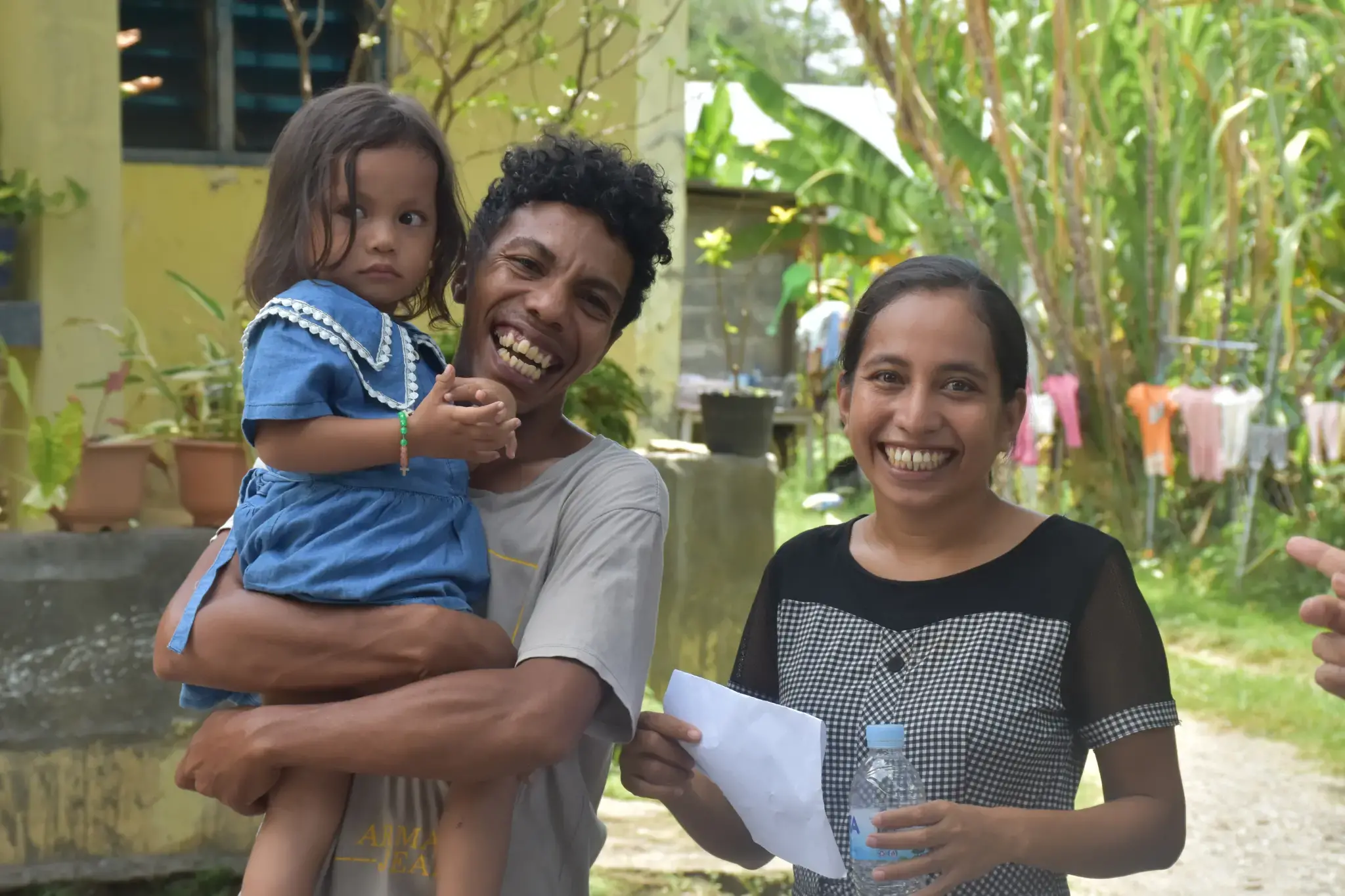For teenage girls, early pregnancy often brings an end to education. Girls often have to drop out of school due to unintended pregnancy or to help care for younger siblings. A 2010 study found that 99% of adolescent mothers in Timor-Leste dropped out of school. By increasing access to family planning, teenage girls would be more likely to stay in school, and in turn, send their own daughters to school.
In Timor-Leste, contraceptive prevalence among married women aged 15 to 49 doubled between 2003 and 2009-2010, rising to 22 per cent, and has since stagnated in the low twenties. Over half the married women of reproductive age (15-49) have expressed a desire to space or limit the number of children they have. Yet less half of this demand for family planning is being met. Nearly one in three women aged 15 to 49 having an unmet need for family planning, with women aged 20 to 24 having the highest unmet need.
A family with fewer children needs less food, land and water and puts less pressure on a country's forests and tillable land. The slower population growth that would result from meeting women's needs for family planning and reproductive health contribute to strategies that promote environmental sustainability. Moreover, family planning is five times less expensive than conventional green technologies for reducing atmospheric carbon dioxide that leads to climate change.
Birth spacing through family planning reduces child mortality. Children born three to five years apart are 2.5 times more likely to survive than children born two years apart. About 750 infant deaths are averted in Timor each year by preventing unintended pregnancies. If we could meet all demands for contraception, another 1,000 infant deaths would be prevented each year.
UNFPA Timor-Leste supports the provision of comprehensive reproductive health services and training, with a focus on safe motherhood, particularly emergency obstetrical and newborn care (EmONC), and family planning (FP). Major achievements included the development of the National Reproductive Health Strategy 2004-2015, the 2004 National Family Planning Policy 2004 and the National Behavior Change Communication Strategy for Reproductive Health 2008-2012.
UNFPA Timor-Leste is commited to supporting the Government of Timor-Leste in expanding access to family planning to achieve sustainable development for health and development programming. Increased access to family planning and reproductive health services supports women's social and economic well-being by enabling them to choose the number and spacing of their children. Women who are able to delay childbearing are more likely to meet their educational goals, obtain productive employment, increase household income, and thus help reduce extreme poverty. Better birth spacing reduces the incidence of low birth weight and poor maternal nutrition. Family planning results in more wealth and less hunger.





